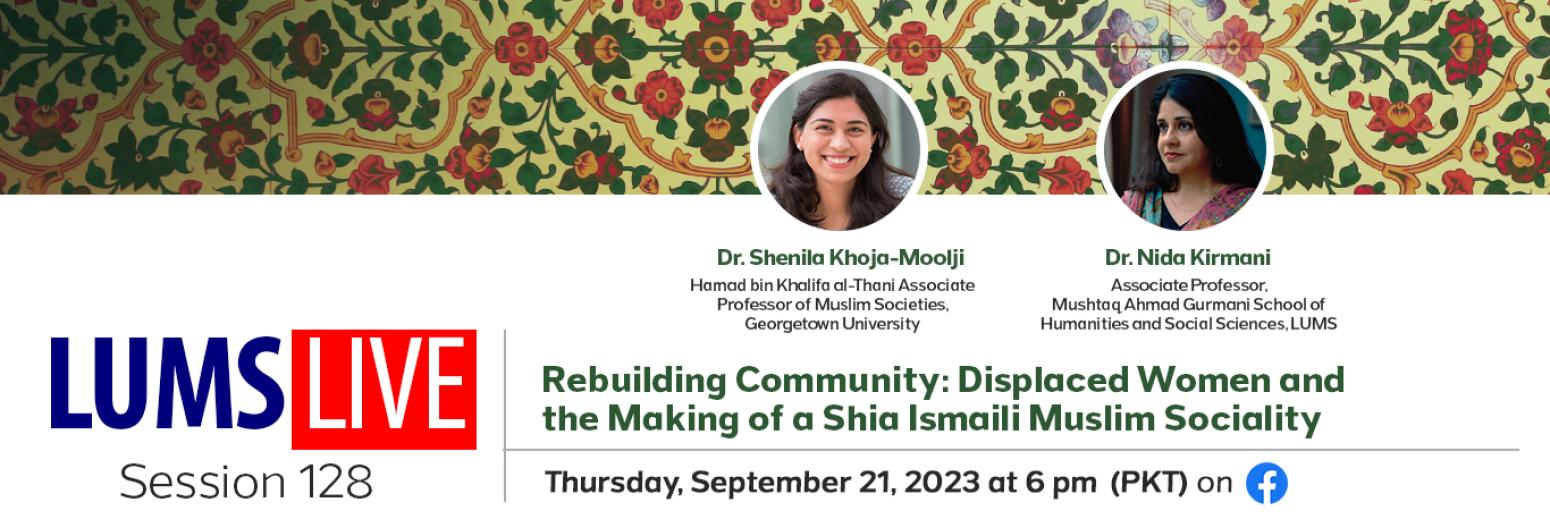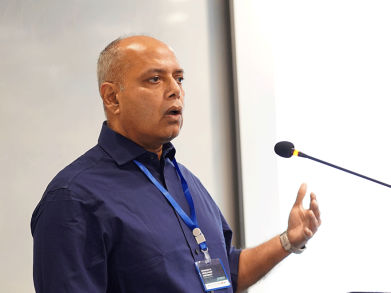
6:00 pm.
September 21, 2023
Over the course of the twentieth century, Shia Ismaili Muslim communities were repeatedly displaced. How, in the aftermath of these displacements, did they remake their communities? Dr. Shenila Khoja-Moolji highlights women's critical role in this rebuilding process and breaks new ground by writing women into modern Ismaili history.
Rebuilding Community tells the story of how Ismaili Muslim women who fled East Pakistan and East Africa in the 1970s recreated religious community (jamat) in North America. Drawing on oral histories, fieldwork, and memory texts, Dr. Khoja-Moolji illuminates the placemaking activities through which Ismaili women reproduce bonds of spiritual kinship: from cooking for congregants on feast days and looking after sick coreligionists to engaging in memory work through miracle stories and cookbooks.
Dr. Khoja-Moolji situates these activities within the framework of ethical norms that more broadly define and sustain the Ismaili sociality. Jamat--and religious community more generally--is not a given, but an ethical relation that is maintained daily and intergenerationally through everyday acts of care. By emphasising women's care work in producing relationality and repairing trauma, Dr. Khoja-Moolji disrupts the conventional articulation of displaced people as dependent subjects in this discussion.
Hosted in collaboration with the Saida Waheed Gender Initiative (SWGI), the session will be moderated by Dr. Nida Kirmani.
Join us for this interesting conversation!



















